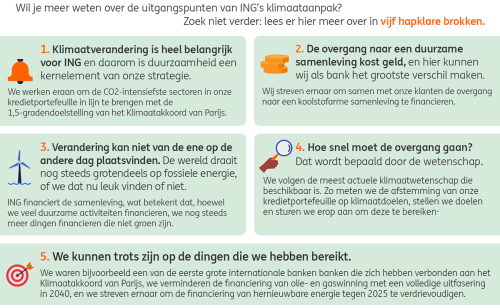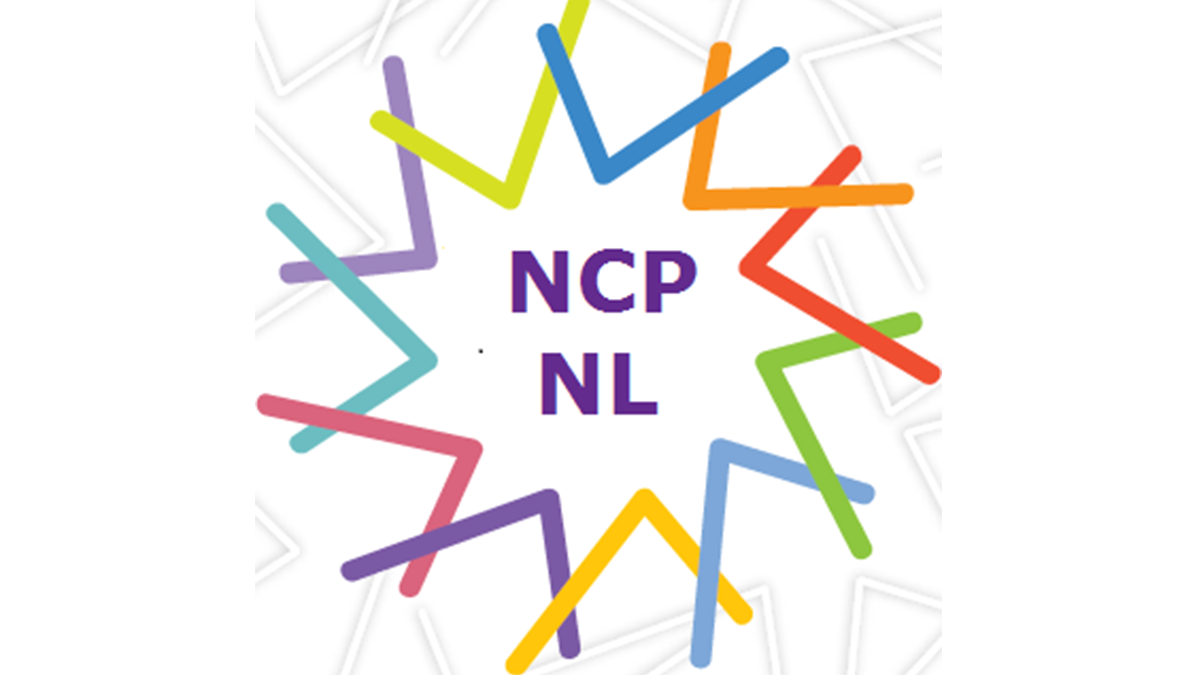ING to enter NCP-facilitated dialogue with NGOs on palm oil
In July 2019, certain NGOs made a notification to the Dutch National Contact Point (NCP) with specific requests regarding ING and palm oil.
The NCP today announced in an initial assessment that the notification by these NGOs (Friends of the Earth Netherlands in cooperation with its partners in Indonesia and Liberia) merits further investigation. The NCP did not express an opinion on either the correctness of the statements made by the NGOs or the response provided by ING.
ING said in July that we would be most willing to have a dialogue with the NGOs. Today, in accordance with its procedures, the Dutch NCP has offered to facilitate this dialogue between ING and Friends of the Earth. ING has accepted.
The NCP is an institution that monitors whether companies comply with the corporate social responsibility guidelines of the OECD, the organisation for economic cooperation between industrialised countries.
In accordance with the NCP procedure, parties will treat the dialogue process and detailed review as confidential. The NCP has stated that the procedure will conclude with a final statement on the results of the procedure that will be published on its website.
Palm oil concerns
The growing demand for palm oil across global supply chains raises questions about the environmental and social sustainability of palm oil plantations. Concerns include potential deforestation, loss of biodiversity and wildlife, unethical labour practices and the displacement of local communities. These are serious issues. Still, it’s generally accepted that alternative oil crops need seven to nine times more land. As a result, replacing oil palms with another type of oil crop would increase the demand for agriculture land.
ING doesn’t finance palm oil plantations. We provide general finance or trade finance to a select group of palm oil companies that undergo enhanced environmental and social risk due diligence. We don’t foresee growing the number of these companies in our portfolio. Mainly because we prefer to focus on engaging with existing clients in the palm oil sector to, where needed, achieve improvements in their businesses. Our response to the initial notification, which explains this, is shown below and it was also published by the NCP today.
Summary of ING’s initial response
Friends of the Earth states that financial institutions like ING should take effective efforts to mitigate or prevent an adverse impact ‘linked to’ palm oil plantations through their business (lending) operations. ING is of the opinion it did perform a proper due diligence and did use its leverage where needed and possible. ING has therefore complied with the OECD Guidelines and did not contribute to any harm. More specific, ING’s response to the notification is the following:
The request to disengage from RSPO certified large-scale palm oil will in general not benefit the goal of sustainability.
All three companies mentioned in Friends of the Earth’s notification are large-scale palm oil producers and traders. All three are members of the Round Table on Sustainable Palm Oil (RSPO). In the Bumitama case, this NCP has already specifically stated that “disengagement of companies that adhere to the RSPO principles will in general not benefit the goal of sustainability". As such, we consider ING’s policy not to disengage from its clients in the palm oil supply chain as they obtained, or are in the process of obtaining RSPO certification, to be in line with the view from the NCP. It is also in line with the view of the Dutch government and other reputable parties, such as the International Union for Conservation of Nature (IUCN), Solidaridad, and the WWF.
ING’s client relationships should be classified as ‘linked to’, rather than ‘contributes to’, according to the OECD Guidelines.
A bank can either be ‘linked to’ the adverse impacts of its clients, or can ’contribute to’ these impacts. This classification is most relevant as it defines the responsibility of and thus actions required by the bank. Much depends on a bank’s due diligence processes and its leverage applied seeking to address adverse impacts. ING believes it is ‘linked to’ the alleged adverse impacts of its clients, rather than ‘contributes to’.




